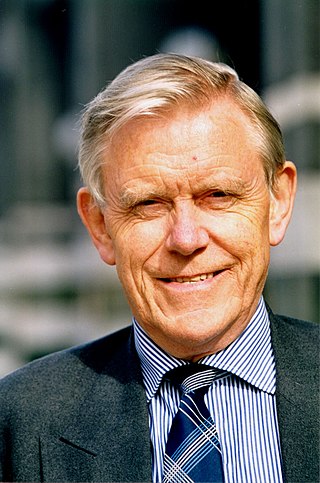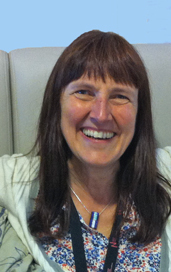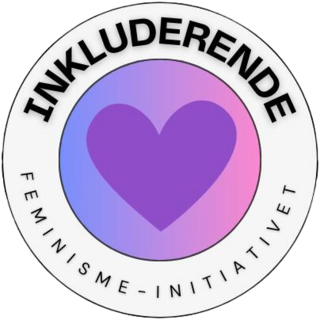Related Research Articles
Feminism is a range of socio-political movements and ideologies that aim to define and establish the political, economic, personal, and social equality of the sexes. Feminism holds the position that modern societies are patriarchal—they prioritize the male point of view—and that women are treated unjustly in these societies. Efforts to change this include fighting against gender stereotypes and improving educational, professional, and interpersonal opportunities and outcomes for women.
Second-wave feminism was a period of feminist activity that began in the early 1960s and lasted roughly two decades, ending with the feminist sex wars in the early 1980s and being replaced by third-wave feminism in the early 1990s. It occurred throughout the Western world and aimed to increase women's equality by building on the feminist gains of the late 19th and early 20th centuries.
Prostitution in Iceland is thriving despite paying for sex being illegal.

Inge Johan Lønning was a Norwegian Lutheran theologian and politician for the Conservative Party of Norway. As an academic, he was Professor of Theology and Rector of the University of Oslo during the term 1985–1992. As a politician, he served as President of the European Movement in Norway, as a Member of Parliament, as Vice President of the Parliament, as Vice President of the Conservative Party, and as President of the Nordic Council.
Eva Lundgren is a Norwegian-Swedish sociologist. She is an expert on violence against women and sexual violence, particularly in religious contexts. She is professor emerita of sociology at Uppsala University.

Torild Skard is a Norwegian psychologist, politician for the Socialist Left Party, a former deputy permanent secretary at the Ministry of Foreign Affairs and a former chairman of UNICEF.
The Norwegian Centre for Violence and Traumatic Stress Studies is a research centre in Oslo, Norway, and Norway's national research institution in violence and sexual abuse; disaster management, terrorism, armed conflicts and traumatic stress; and forced migration and refugee health research. It is interdisciplinary and employs experts mainly in psychology, psychiatry, and the social sciences. In addition to carrying out research and related activities, the institute advises the Government of Norway in its areas of expertise and has some official emergency management functions at the national level. NKVTS has 101 employees.
Helga Marie Hernes is a German-born Norwegian political scientist, diplomat, and politician for the Labour Party.
The Nordic Gender Institute (NIKK) (Norwegian: Nordisk institutt for kunnskap om kjønn), previously Nordic Institute for Women's Studies and Gender Research, was a transnational resource and information centre for gender research and gender equality in the Nordic countries. It was established in 1995 by the Nordic Council of Ministers and closed down in 2011.
State feminism is feminism created or approved by the government of a state or nation. It usually specifies a particular program. The term was coined by Helga Hernes with particular reference to the situation in Norway, which had a tradition of government-supported liberal feminism dating back to the 1880s, and is often used when discussing the government-supported gender equality policies of the Nordic countries, that are linked to the Nordic model. The term has also been used in the context of developing countries where the government may prescribe its form of feminism and at the same time prohibit non-governmental organizations from advocating for any other feminist program. In this sense it is possible to distinguish between a liberal state feminism found in Western democracies such as the Nordic countries, and a somewhat more authoritarian state feminism that is often also linked to secularism, found e.g. in certain Middle Eastern countries.

The feminist movement in Norway has made significant progress in reforming laws and social customs in the nation, advancing the rights of the women of Norway.
Beatrice Halsaa is a Norwegian political scientist, gender studies expert and feminist. She was appointed as Professor of Gender Studies at the University of Oslo in 2003, the second person to hold a chair in that discipline at the University of Oslo. She was leader of the EU research project "Gendered Citizenship in Multicultural Europe: The Impact of Contemporary Women's Movements," which was a cooperation of 15 research institutions in ten countries. Her fields of expertise are gender equality, women's movements, feminist theory, and multiculturalism.

Margunn Bjørnholt is a Norwegian sociologist and economist. She is a research professor at the Norwegian Centre for Violence and Traumatic Stress Studies (NKVTS) and a professor of sociology at the University of Bergen. Her research has focused on financial institutions, management and working life and later on gender equality, migration and violence. She has also worked as a consultant, a civil servant, served as an expert to the European Commission and been president of the Norwegian Association for Women's Rights.

The feminist movement in Malaysia is a multicultural coalition of women's organisations committed to the end of gender-based discrimination, harassment and violence against women. Having first emerged as women's shelters in the mid 1980s, feminist women's organisations in Malaysia later developed alliances with other social justice movements. Today, the feminist movement in Malaysia is one of the most active actors in the country's civil society.

Latin American feminism is a collection of movements aimed at defining, establishing, and achieving equal political, economic, cultural, personal, and social rights for Latin American women. This includes seeking to establish equal opportunities for women in education and employment. People who practice feminism by advocating or supporting the rights and equality of women are feminists.
May-Len Skilbrei is a Norwegian sociologist, criminologist and gender studies scholar. She is Professor of Criminology at the Department of Criminology and Sociology of Law at the University of Oslo Faculty of Law. She has previously been Managing Director of the Fafo Institute for Applied International Studies. She is editor-in-chief of the journal Sosiologi i dag. She has also been President of the Association for Gender Research in Norway, board member of the European Society of Criminology and board member of the University of Oslo Faculty of Law. She also headed the Research network on prostitution in the Nordic countries. She has been described by Aftenposten as one of Norway's leading experts on prostitution and human trafficking.
Nurser Öztunali was a Turkish architect, feminist and publisher. A survivor of domestic violence herself, she became a vocal advocate against it and was one of the founders of a group that supported women's shelters for its victims in Turkey.
Elizabeth Mary Ettorre is an Anglo-American feminist sociologist.

The Initiative for Inclusive Feminism is a Norwegian national intersectional feminist organization that works for equality, diversity and inclusion on the basis of human rights. It is Norway's main intersectional feminist organization. IFI emphasizes that feminism must be based on human rights and the struggles of vulnerable minorities, and IFI advocates for several vulnerable minority groups, focusing on issues like trans inclusion and anti-racism. Since 2022 IFI has organized Inclusive March 8 together with Sex og politikk, FRI and other organizations.
References
- ↑ "Bergman, Solveig". VIAF. Retrieved 3 April 2024.
- 1 2 The Politics of Feminism: Autonomous Feminist Movements in Finland and West Germany from the 1960s to the 1980s. Åbo akademis Förlag. 2002. ISBN 9789517651004 . Retrieved 2 April 2024.
- 1 2 Ericsson Shook, Marte. "With the Nordics in mind". Kifindo.
- 1 2 "Experts and selection". Atria. Retrieved 2 April 2024.
- ↑ "Shelters in Norway and Slovakia". Norwegian Centre for Violence and Traumatic Stress Studies. 25 September 2006. Retrieved 2 April 2024.
- ↑ Bergman, Solveig (1992). "Nordic Cooperation in Women's Studies". Women's Studies Quarterly. 20 (3/4). JSTOR: Women's Studies Quarterly, Vol. 20: 58–67. JSTOR 40003703 . Retrieved 3 April 2024.